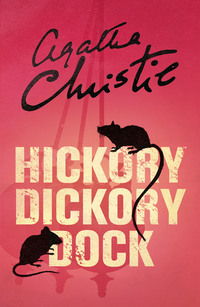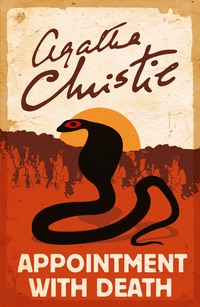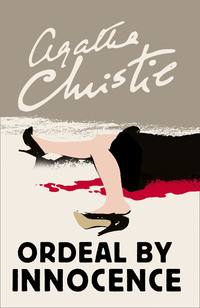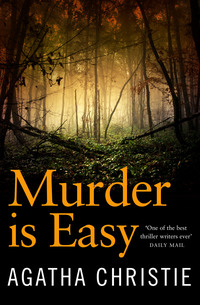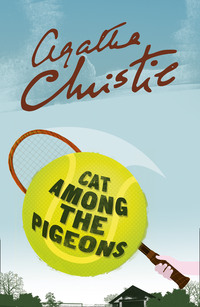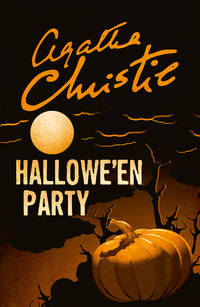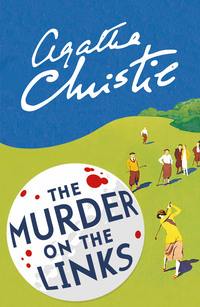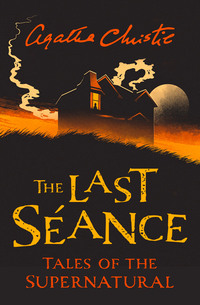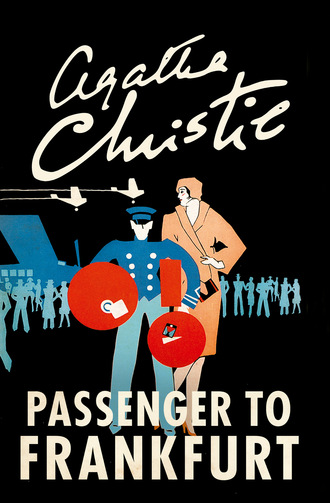
Полная версия
The gentle buzz of the intercom on his desk roused him. He blinked three times and opened his eyes. He stretched forth a rather weary-looking hand and picked up the receiver.
‘Well?’ he said.
His secretary’s voice spoke.
‘The Minister is here waiting to see you.’
‘Is he now?’ said Colonel Pikeaway. ‘And what Minister is that? The Baptist minister from the church round the corner?’
‘Oh no, Colonel Pikeaway, it’s Sir George Packham.’
‘Pity,’ said Colonel Pikeaway, breathing asthmatically. ‘Great pity. The Reverend McGill is far more amusing. There’s a splendid touch of hell fire about him.’
‘Shall I bring him in, Colonel Pikeaway?’
‘I suppose he will expect to be brought in at once. Under Secretaries are far more touchy than Secretaries of State,’ said Colonel Pikeaway gloomily. ‘All these Ministers insist on coming in and having kittens all over the place.’
Sir George Packham was shown in. He coughed and wheezed. Most people did. The windows of the small room were tightly closed. Colonel Pikeaway reclined in his chair, completely smothered in cigar ash. The atmosphere was almost unbearable and the room was known in official circles as the ‘small cat-house’.
‘Ah, my dear fellow,’ said Sir George, speaking briskly and cheerfully in a way that did not match his ascetic and sad appearance. ‘Quite a long time since we’ve met, I think.’
‘Sit down, sit down do,’ said Pikeaway. ‘Have a cigar?’
Sir George shuddered slightly.
‘No, thank you,’ he said, ‘no, thanks very much.’
He looked hard at the windows. Colonel Pikeaway did not take the hint. Sir George cleared his throat and coughed again before saying:
‘Er—I believe Horsham has been to see you.’
‘Yes, Horsham’s been and said his piece,’ said Colonel Pikeaway, slowly allowing his eyes to close again.
‘I thought it was the best way. I mean, that he should call upon you here. It’s most important that things shouldn’t get round anywhere.’
‘Ah,’ said Colonel Pikeaway, ‘but they will, won’t they?’
‘I beg your pardon?’
‘They will,’ said Colonel Pikeaway.
‘I don’t know how much you—er—well, know about this last business.’
‘We know everything here,’ said Colonel Pikeaway. ‘That’s what we’re for.’
‘Oh—oh yes, yes certainly. About Sir S.N.—you know who I mean?’
‘Recently a passenger from Frankfurt,’ said Colonel Pikeaway.
‘Most extraordinary business. Most extraordinary. One wonders—one really does not know, one can’t begin to imagine …’
Colonel Pikeaway listened kindly.
‘What is one to think?’ pursued Sir George. ‘Do you know him personally?’
‘I’ve come across him once or twice,’ said Colonel Pikeaway.
‘One really cannot help wondering—’
Colonel Pikeaway subdued a yawn with some difficulty. He was rather tired of Sir George’s thinking, wondering, and imagining. He had a poor opinion anyway of Sir George’s process of thought. A cautious man, a man who could be relied upon to run his department in a cautious manner. Not a man of scintillating intellect. Perhaps, thought Colonel Pikeaway, all the better for that. At any rate, those who think and wonder and are not quite sure are reasonably safe in the place where God and the electors have put them.
‘One cannot quite forget,’ continued Sir George, ‘the disillusionment we have suffered in the past.’
Colonel Pikeaway smiled kindly.
‘Charleston, Conway and Courtfold,’ he said. ‘Fully trusted, vetted and approved of. All beginning with C, all crooked as sin.’
‘Sometimes I wonder if we can trust anyone,’ said Sir George unhappily.
‘That’s easy,’ said Colonel Pikeaway, ‘you can’t.’
‘Now take Stafford Nye,’ said Sir George. ‘Good family, excellent family, knew his father, his grandfather.’
‘Often a slip-up in the third generation,’ said Colonel Pikeaway.
The remark did not help Sir George.
‘I cannot help doubting—I mean, sometimes he doesn’t really seem serious.’
‘Took my two nieces to see the châteaux of the Loire when I was a young man,’ said Colonel Pikeaway unexpectedly. ‘Man fishing on the bank. I had my fishing-rod with me, too. He said to me, “Vous n’êtes pas un pêcheur sérieux. Vous avez des femmes avec vous.”’
‘You mean you think Sir Stafford—?’
‘No, no, never been mixed up with women much. Irony’s his trouble. Likes surprising people. He can’t help liking to score off people.’
‘Well, that’s not very satisfactory, is it?’
‘Why not?’ said Colonel Pikeaway. ‘Liking a private joke is much better than having some deal with a defector.’
‘If one could feel that he was really sound. What would you say—your personal opinion?’
‘Sound as a bell,’ said Colonel Pikeaway. ‘If a bell is sound. It makes a sound, but that’s different, isn’t it?’ He smiled kindly. ‘Shouldn’t worry, if I were you,’ he said.
Sir Stafford Nye pushed aside his cup of coffee. He picked up the newspaper, glancing over the headlines, then he turned it carefully to the page which gave Personal advertisements. He’d looked down that particular column for seven days now. It was disappointing but not surprising. Why on earth should he expect to find an answer? His eye went slowly down miscellaneous peculiarities which had always made that particular page rather fascinating in his eyes. They were not so strictly personal. Half of them or even more than half were disguised advertisements or offers of things for sale or wanted for sale. They should perhaps have been put under a different heading but they had found their way here considering that they were more likely to catch the eye that way. They included one or two of the hopeful variety.
‘Young man who objects to hard work and who would like an easy life would be glad to undertake a job that would suit him.’
‘Girl wants to travel to Cambodia. Refuses to look after children.’
‘Firearm used at Waterloo. What offers.’
‘Glorious fun-fur coat. Must be sold immediately. Owner going abroad.’
‘Do you know Jenny Capstan? Her cakes are superb.
Come to 14 Lizzard Street, S.W.3.’
For a moment Stafford Nye’s finger came to a stop. Jenny Capstan. He liked the name. Was there any Lizzard Street? He supposed so. He had never heard of it. With a sigh, the finger went down the column and almost at once was arrested once more.
‘Passenger from Frankfurt, Thursday Nov. 11, Hungerford Bridge 7.20.’
Thursday, November 11th. That was—yes, that was today. Sir Stafford Nye leaned back in his chair and drank more coffee. He was excited, stimulated. Hungerford. Hungerford Bridge. He got up and went into the kitchenette. Mrs Worrit was cutting potatoes into strips and throwing them into a large bowl of water. She looked up with some slight surprise.
‘Anything you want, sir?’
‘Yes,’ said Sir Stafford Nye. ‘If anyone said Hungerford Bridge to you, where would you go?’
‘Where should I go?’ Mrs Worrit considered. ‘You mean if I wanted to go, do you?’
‘We can proceed on that assumption.’
‘Well, then, I suppose I’d go to Hungerford Bridge, wouldn’t I?’
‘You mean you would go to Hungerford in Berkshire?’
‘Where is that?’ said Mrs Worrit.
‘Eight miles beyond Newbury.’
‘I’ve heard of Newbury. My old man backed a horse there last year. Did well, too.’
‘So you’d go to Hungerford near Newbury?’
‘No, of course I wouldn’t,’ said Mrs Worrit. ‘Go all that way—what for? I’d go to Hungerford Bridge, of course.’
‘You mean—?’
‘Well, it’s near Charing Cross. You know where it is. Over the Thames.’
‘Yes,’ said Sir Stafford Nye. ‘Yes, I do know where it is quite well. Thank you, Mrs Worrit.’
It had been, he felt, rather like tossing a penny heads or tails. An advertisement in a morning paper in London meant Hungerford Railway Bridge in London. Presumably therefore that is what the advertiser meant, although about this particular advertiser Sir Stafford Nye was not at all sure. Her ideas, from the brief experience he had had of her, were original ideas. They were not the normal responses to be expected. But still, what else could one do. Besides, there were probably other Hungerfords, and possibly they would also have bridges, in various parts of England. But today, well, today he would see.
It was a cold windy evening with occasional bursts of thin misty rain. Sir Stafford Nye turned up the collar of his mackintosh and plodded on. It was not the first time he had gone across Hungerford Bridge, but it had never seemed to him a walk to take for pleasure. Beneath him was the river and crossing the bridge were large quantities of hurrying figures like himself. Their mackintoshes pulled round them, their hats pulled down and on the part of one and all of them an earnest desire to get home and out of the wind and rain as soon as possible. It would be, thought Sir Stafford Nye, very difficult to recognize anybody in this scurrying crowd. 7.20. Not a good moment to choose for a rendezvous of any kind. Perhaps it was Hungerford Bridge in Berkshire. Anyway, it seemed very odd.
He plodded on. He kept an even pace, not overtaking those ahead of him, pushing past those coming the opposite way. He went fast enough not to be overtaken by the others behind him, though it would be possible for them to do so if they wanted to. A joke, perhaps, thought Stafford Nye. Not quite his kind of joke, but someone else’s.
And yet—not her brand of humour either, he would have thought. Hurrying figures passed him again, pushing him slightly aside. A woman in a mackintosh was coming along, walking heavily. She collided with him, slipped, dropped to her knees. He assisted her up.
‘All right?’
‘Yes, thanks.’
She hurried on, but as she passed him, her wet hand, by which he had held her as he pulled her to her feet, slipped something into the palm of his hand, closing the fingers over it. Then she was gone, vanishing behind him, mingling with the crowd. Stafford Nye went on. He couldn’t overtake her. She did not wish to be overtaken, either. He hurried on and his hand held something firmly. And so, at long last it seemed, he came to the end of the bridge on the Surrey side.
A few minutes later he had turned into a small café and sat there behind a table, ordering coffee. Then he looked at what was in his hand. It was a very thin oilskin envelope. Inside it was a cheap quality white envelope. That too he opened. What was inside surprised him. It was a ticket.
A ticket for the Festival Hall for the following evening.
Конец ознакомительного фрагмента.
Текст предоставлен ООО «ЛитРес».
Прочитайте эту книгу целиком, купив полную легальную версию на ЛитРес.
Безопасно оплатить книгу можно банковской картой Visa, MasterCard, Maestro, со счета мобильного телефона, с платежного терминала, в салоне МТС или Связной, через PayPal, WebMoney, Яндекс.Деньги, QIWI Кошелек, бонусными картами или другим удобным Вам способом.


